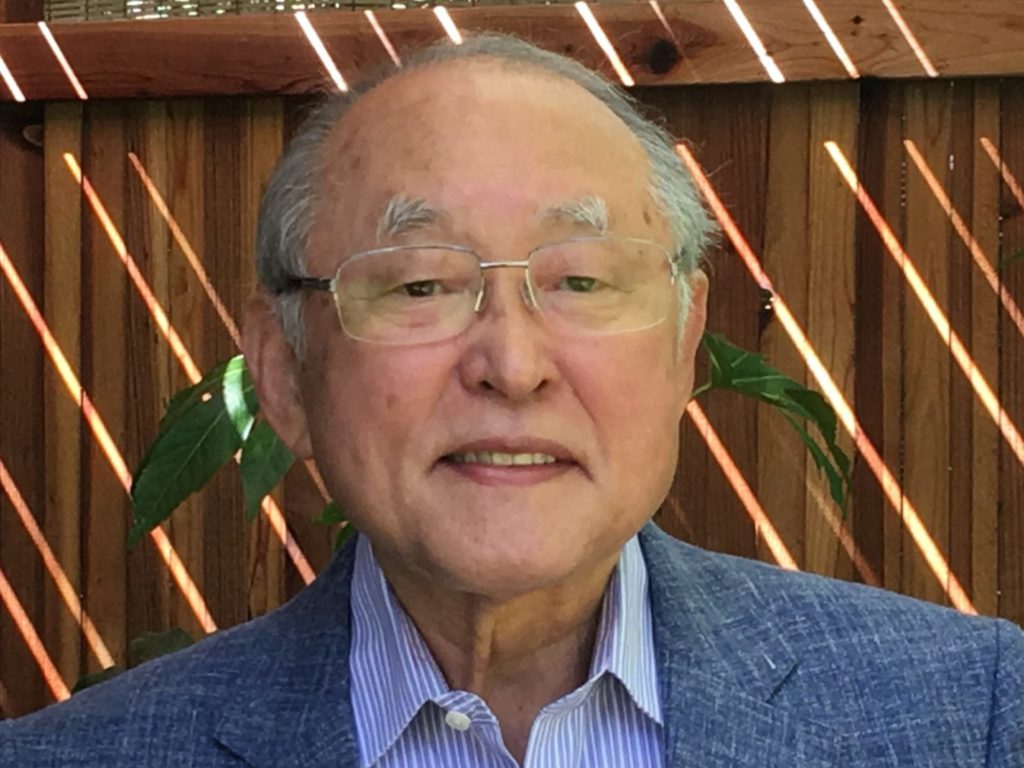heading
2001: Takashi Asano, USA
When Professor Takashi Asano received the Stockholm Water Prize from the hands of HM King Carl XVI Gustaf of Sweden on August 16, 2001, it was a grand moment that honoured his life’s journey.

When Professor Takashi Asano received the Stockholm Water Prize from the hands of HM King Carl XVI Gustaf of Sweden on August 16, 2001, it was a grand moment that honoured his life’s journey.
The journey took him from his birthplace, the beautiful city of Sapporo on Japan’s northernmost island of Hokkaido, through the era-defining social and scientific moments of the 1960s in Berkeley, Calif., and onward to many noteworthy professional accomplishments in both government and academic service.
By the time of the award, Professor Asano had been engaged in both theoretical research and practical application in wastewater reclamation, recycling and reuse for over 20 years. The basic studies were made in the 1980s and 1990s and resulted in the safe use of reclaimed water and culminated in the California water recycling regulations and practices. These investigations formed a reference point for efficient use of water and most international projects and decrees within the water reuse discipline. Professor Asano used these original investigations for a world-wide promotion of the field: water reuse in agricultural and landscape irrigation, groundwater recharge, industries and environmental enhancement.
He also expanded the original investigations and adapted the concept in different developed and developing countries. His main achievement was as a promoter of the concept, taking into account the scientific base and a risk management approach presently existing and for the future in the complex world of technology, reliability, health protection and public acceptance. Substantial achievements by him included the microbial risk assessment concept, and expansion of this area within the field of wastewater reuse. In this, he and his co-workers combined virus-monitoring data with new approaches in reliability and expectation using statistical evaluations and simulation. The area is rapidly expanding as a policy and management tool.
“One common thing that I learned from visiting these countries was that there were many well-educated and well-trained people in water sciences and engineering, and public health. We certainly need to get valuable advice from those knowledgeable people.”
His contributions to the science and technology in that field went far beyond his role as an academic and formerly as a government employee. He acted as a catalyst for the technological advancement and as a mediator among scientists, practitioners and politicians in arid and semi-arid countries where water is needed most and priced the highest, and among Asian countries and the western world.
Professor Asano recognised early that developing countries in semi-arid or arid regions in the world, with a fast growing population and limited economic resources need special attention and contributed significantly to solutions of developing countries water scarcity problems. Countless local, regional, national, and international agencies have benefited from Professor Asano’s expertise and advice.
Though there is no other name so widely recognised and so highly appreciated world-wide in the field of wastewater reclamation, recycling and reuse than Professor Asano. But he is quick to recognise others. In fact, he credits his Stockholm Water Prize honour as a result of the collaborative efforts with colleagues and mentors in the USA, the Mediterranean countries, Northern Africa, the Middle East, South America, Japan and elsewhere.
Since 2001, Professor Asano has focused on writing a water reuse textbook with two expert colleagues. This textbook is to treat water recycling and reuse as a sustainable option in integrated water resources management. Professor Asano is developing a framework for how wastewater reuse must be integrated to water resources with advanced treatment technologies and resultant public health protection.